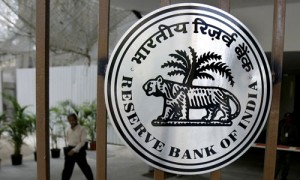By: Ravi Sinha
 In a further blow to the dampened Diwali spirit of the realty sector the Reserve bank of India (RBI) raised interest rates on today, October 25, for the 13th time since early 2010 but said it was likely to hold off on further increases as it expects high inflation to ease beginning in December.
In a further blow to the dampened Diwali spirit of the realty sector the Reserve bank of India (RBI) raised interest rates on today, October 25, for the 13th time since early 2010 but said it was likely to hold off on further increases as it expects high inflation to ease beginning in December.
The RBI raised interest rates by a quarter of a percentage point to combat near double-digit inflation, despite signs of slackening growth. The RBI has also reduced GDP growth projection to 7.6 % from 8 % in 2011-12.
The RBI has predicted that the inflation will fall from December; pegged it at 7 % by March end.
The real estate sector has reacted sharply to the rate hike calling it Black Diwali. Babulal Varma, Managing Director, Omkar Realtors & Developers says the rising inflation, the rise in interest rate and the global economy slowdown has already taken a toll on the real-estate sector. Any further rise in interest rate will further cripple the sector.
“As per urbanization report, there is a major shortage of apartments which are required in urban areas in India. Still one can notice that there has been a 20 to 25% decline in registration in Mumbai alone. The transactions have slowed down. The rise in interest rates increases the cost of capital for the developer and for the buyer. Thus it is a double burden on the end user as the developer also has to pass on the cost to the end user,” says Varma.
Realtors assert when transactions slow down and the cost of capital increases, developers have no choice but to differ plans to launch new projects. As real-estate projects have a two to three years construction cycle, the impact of such policies has not just a short term but a long term impact on the overall market scenario.
Anuj Puri, Chairman & Country Head, Jones Lang LaSalle India, says the economy is showing signs of decelerated GDP growth, and inflation has not abated despite the flurry of interest rate hikes. “Real estate developers are facing high debt, and were looking forward to the festival season for sales to improve. However, the spate of increases in home loan interest rates will dampen sales even further. Buyer sentiments on the residential market will remain somber for now, and the absorption rate will remain low. This is indubitably a buyer’s market now, and investor activity in residential real estate will decrease further. New launches will decline, as will growth in capital values. In a normal scheme of things, the current scenario would hasten a correction in metropolitan cities where residential markets have slowed down due to overly high product costs. However, developers are facing a considerable liquidity crunch due to high cost of borrowing compounded by slow sales. The RBI may want to rethink its seemingly one-dimensional strategy to combat inflation. The high costs of construction that are resulting from it are not helping anyone, because developers have little option but to pass on the bulk of the additional burden to buyers,” he says.
The repo rate hike by RBI comes as a dampener of the Diwali festive spirit, according to Lalit Kumar Jain, National President of Confederation of Real Estate Developers’ Associations of India (CREDAI).
“As we have been saying the rate hikes coming very frequently will prove to be counterproductive since the move will have a cost-push impact rather than proving to be an inflation control measure. The rates of interest are bound to zoom and this will further weaken the sluggish demand in real estate sector, he pointed out,” says Jain.
CREDAI has called for immediate steps for initiating reforms in real estate like transparency, quick clearances, single window system for clearing building permissions and rationalization of land and even registration policy for which CREDAI has been campaigning.
Meanwhile, RICS (Royal Institution of Chartered Surveyors) in a statement says even with the rate hike, the residential real estate sector is likely to remain relatively resilient in the face of more moderate pace of economic growth and the higher cost of borrowing. The JLL REIS third quarter numbers for the top seven metros indicate prices are broadly stable at recent highs and activity levels also essentially flat. Also, in spite of the relatively high cost of borrowing the credit growth for housing continues to post strong year-on-year gains.
“However, there are a few signs that confidence, particularly amongst developers, may be slipping with a marginal drop in the number of new launches (30.3k units as compared to a four quarter average of 44.4k). In the case of commercial real estate, particularly office space, even though economic growth projections have slowed down to 7% – 7.5%, demand is likely to remain firm, helping underpin rental growth. However, the rate revisions may result in these trends moderating over the course of the coming months,” the statement says.





